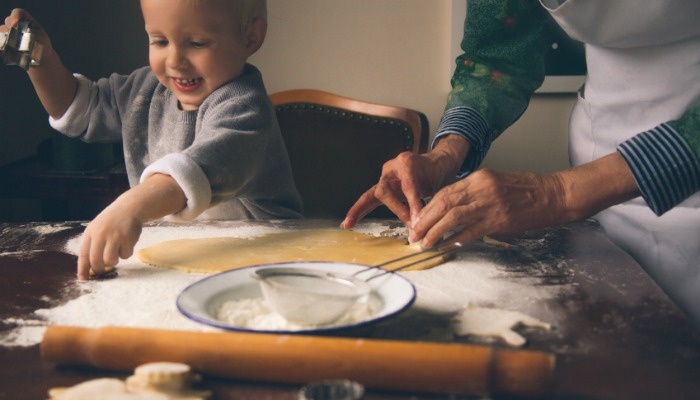
This blog was published on December 12, 2015 and updated on January 15, 2020.
Boredom can feel mind-numbing, making each moment more intolerable than the last. As it turns out, it can also prove fatal. In one study, researchers followed more than 7,500 British civil servants who ranged in age from 35 to 55. People who said they were very bored at work were 250 percent more likely to die of cardiovascular disease than their peers.
This may seem like an extreme case, but other research also supports the claim that boredom can prove lethal. Many people feel bored because they are lonely. The National Institutes of Health has called loneliness a public health epidemic, arguing that it is as bad for a person’s health as smoking 15 cigarettes a day. Other research shows that interactions with others keep adults active, and that remaining mentally active may help people live longer, healthier lives. The right activities don’t just feel good. Activities for seniors may actually save their lives.
Social Interaction Boosts Health
Staying active and connected to others can help you maintain good physical and emotional health and cognitive function. People who have close friendships live longer than those who are isolated, and there is evidence that positive relationships and social interaction can even boost your immune system and improve long-term health outcomes well into old age.
Senior Living Communities Tackle Boredom
Although people of all ages can become bored, isolated and disconnected, this risk is particularly high for older adults, who are usually no longer working and are more likely to suffer from physical and/or cognitive disabilities, which can make getting out difficult. Living alone can be particularly hard as it can seem nearly impossible to pick up new hobbies or relationships so late in life.
Moving to a senior living community can be an antidote to the boredom and loneliness that frequently come with aging. Not only are these communities designed with many common areas, which allow for easy socializing, but they also provide a variety of entertainment and recreational opportunities. For instance, many communities offer on-site movies as well as musical shows and other performances. There may be planned day trips to museums, galleries, or shopping centers. Residents are often encouraged to join groups like book clubs or gardening clubs, which are designed to both stimulate their minds and help them connect with their peers.
Creativity and Art
One way to stimulate the brain, increase concentration, and gain a sense of positive self-esteem is by learning new arts, crafts, or hobbies. Even people with physical limitations can enjoy these activities with the right accommodations. Senior living communities offer everything from drawing and painting to knitting, scrapbooking, or woodworking. If a senior does not have artistic skills, they can always discover art with adult coloring books. Senior life history writing is another way residents can connect with their past and explore memories through creativity.
Music
Because music can energize people, stir up their emotions, and fire up recall abilities, it often plays a big role in senior living communities. For instance, in addition to attending music shows, residents themselves can make music through singalongs or music therapy programs. Healthy, active residents may relish the chance to master a new instrument or hone their singing skills.
Even seniors with major physical limitations or dementia can find deep meaning in music. Music may help ease anxiety and offer a sense of purpose to people with dementia. A 2018 study found that listening to familiar music may activate parts of the brain that other activities don’t affect, promoting motivation and attention, and even improving memory.
Games
Card and board games, puzzles, and other tabletop activities engage the brain and offer low-stress interactions with others.
Some communities also provide computer rooms where seniors can check their email, surf the internet or stay connected with friends and family through Skype. A senior is never too old to master new technology. Not only does doing so present a cognitive challenge that can improve brain functioning, but it can also open doors to new worlds. Social media, blogs, and news sites connect seniors to the wider world and may help them renew old friendships while cultivating new relationships.
Exercise
Physical activity is one of the single most effective strategies for remaining healthy and happy. Exercise reduces the risk of diseases such as dementia, cardiovascular disease, and diabetes. It helps seniors maintain a healthy body weight, and may even prevent depression. It’s also a great way to connect with others. Walking with a friend or participating in weekly yoga classes can help seniors maintain a healthy routine while making new friends.
Community Service
Finally, people with a sense of purpose are rarely bored. Recognizing this, some senior living communities actually offer residents the chance to work on a community service project. These projects help residents develop collaborative relationships while offering a deeper sense of purpose. Volunteering can even improve a person’s health. One study suggests that people who volunteer because they want to help others may live longer.
Retirement offers a chance to pursue new hobbies, invest more deeply in old interests, and prioritize close relationships. Of course, many seniors feel overwhelmed by the sudden increase in free time. If you’re not sure how to fill your time, check out The Busy Person’s Guide to Recreation in Retirement.
Which activities help you feel healthy and fulfilled? Share them in the comments!

